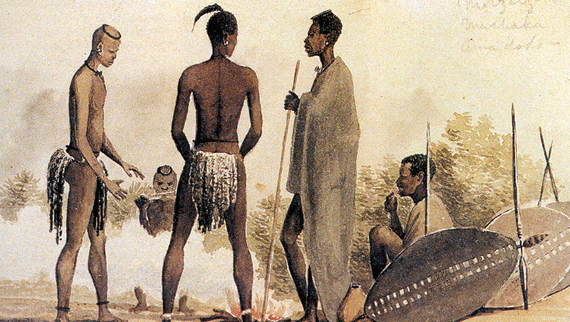
ALBERT ZWELIBANZI KHUMALO Gumede, who was installed as paramount chief of the controversial secessionist “Mthwakazi Republic” in March by a group of people from Matabeleland, based in South Africa, on Saturday attended commemorations to mark the death of Ndebele nation’s King Mzilikazi.
BENSON DUBE OWN CORRESPONDENT
The celebrations were held at Entumbane, Mhlahlandlela, close to Matopo and Gumede’s presence sparked interest.
About 10 South African chiefs from KwaZulu Natal attended Gumede’s controversial installation in Johannesburg, and his crowning reportedly had the blessings of Zulu monarch King Goodwill Zwelithini.
However, the installation was criticised by descendants of the last Ndebele king Lobengula who said Gumede, a businessman based in South Africa, was not from the royal family.
The commotion started when the master of ceremony, Enock Zitha, handed the microphone to self-proclaimed Ndebele prince Sikhulu Khumalo, who was relieving him now and again.
Khumalo announced the presence of Gumede and his delegation at the commemorations, and Zitha then tried to forcefully retrieve the microphone from Khumalo, but the latter repelled his attempts by shoving him.
Zitha staggered and was held by people in the crowd before he could fall.
- Chamisa under fire over US$120K donation
- Mavhunga puts DeMbare into Chibuku quarterfinals
- Pension funds bet on Cabora Bassa oilfields
- Councils defy govt fire tender directive
Keep Reading
Khumalo proceeded to introduce Gumede, who was given an opportunity to address the gathering, ostensibly to prevent further pandemonium.
Gumede tried to calm tempers by declaring his allegiance to his local chief and adding that he respected all the country’s chiefs.
Gumede said he was a subject of Chief Mabhena of Gwanda and was only a chief in South Africa representing all Zimbabweans living in that country.
“I am here to tell you that being the chief of all the Zimbabweans based in South Africa means that I assist the people of this country in many ways, and this includes facilitation of work permits, employment so on and so forth,” he said.
“I do not undermine cultural leaders in the country and I also belong to a chief here in the country.”
Chief Maduna of Filabusi, who gave the official opening remarks at the occasion, said some chiefs did not attend the commemorations because they feared the unknown.
“Several chiefs were invited, but I am surprised that not even one is with us,” he said.
“King Mzilikazi united many tribes together and after his death, King Lobengula took over and later disappeared in the Shangani area following some heavy rains.
“All the chiefs under King Mzilikazi were commanders and he did not just pick them from nowhere.
“Even during the armed struggle, some people ran away and today you are not seeing any chiefs; maybe it is because they are cowards.
“Mthwakazi, you are the ones who want a king; we shall take the issue to the government.
“Chiefs are forgetting that they are chiefs because of the king. Their forefathers were King Mzilikazi’s commanders.
“It is not any offence to commemorate King Mzilikazi; you cannot arrest me for remembering my king.
“And if you come to my home and ask me why l attended King Mzilikazi Day, we will fight. We want King Mzilikazi and King Lobengula’s spirit to work.”
Chief Maduna called for the preservation of Gadade and Phuphu shrines saying the Imbizo regiment perished fighting to grab the machine guns of the white settlers.
Chief Nyangazonke joined the commemorations later and commended the attendance.
He urged people to bring their children next year so that Ndebele culture does not fade with the death of elders.
Phenduka, Mbabane Mbabazane and Amazulu Oqobolwawo cultural groups from South Africa and Zimbabwean dance and cultural groups, Sojini Phelandaba, Woza Africa and Sivika Matshobana, provided entertainment.










